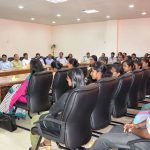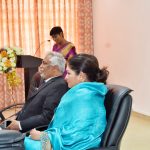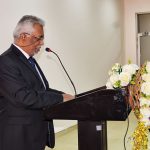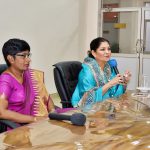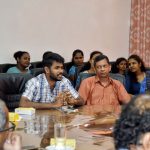
Women’s Day 2017
Rosy Senanayake advocates for affirmative action in the form of quotas to increase women’s participation in politics.
The chief-guest at the Faculty of Graduate Studies’ Women’s Day commemoration was Ms. Rosy Senanayake. Ms. Senanayake is currently the deputy chief of staff at the Office of the Prime Minister and the chief spokesperson for the honourable Prime Minister—Ranil Wickramasinghe. Ms. Senanayake’s formal political career commenced in 1997 when she was appointed to the UNP’s working committee. Ms. Senanayake has been the UNP’s chief organiser for the Western Province and also the Leader of the Opposition of the Western Province.
In a powerful and emotive speech on ‘Women’s Participation in Politics: Challenges and Opportunities’, Ms. Senanayake strongly advocated for affirmative action to increase women’s participation in politics at all levels. She spoke about politics as a ‘man’s world’ in which women are ignored and dismissed as incompetent. Ms. Senanayake condemned those who intimidate and publicly vilify women with political aspirations. Contrary to popular belief that women are reluctant to enter politics, Ms. Senanayake asserted that women are willing to run for office if they are given the opportunity and are keen to serve their constituencies. Hence, according to her, a quota system to ensure women are nominated is essential if Sri Lanka is to demonstrate its commitment to gender equality.
Before entering formal politics Ms. Senanayake was involved in public service and diplomatic work. She was the goodwill ambassador to the United Nations Population Fund where she has actively promoted the has promoted reproductive health services for workers, in particular for migrant women workers in Sri Lanka’s Free Trade Zone. She has also promoted the reproductive health services for young people through the National Youth Services Council. Ms. Senanayake was also instrumental in initiating a campaign with the private sector in Sri Lanka to provide reproductive health services to employees of private companies.
Ms. Senanayake spoke about the power of primary and secondary education to change attitudes and behaviours that perpetuate negative beliefs about women. She believed that it is through alternative messages about women’s worth and dignity that a lasting change can be made.



